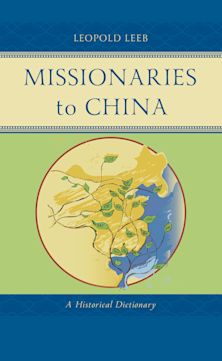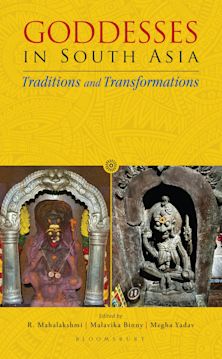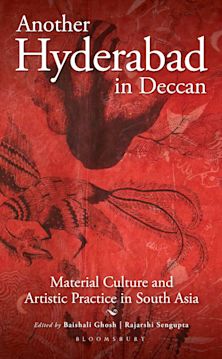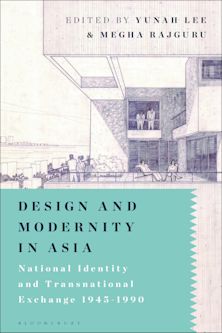- Home
- ACADEMIC
- History
- Asian History
- Biology and Revolution in Twentieth-Century China
Biology and Revolution in Twentieth-Century China
This product is usually dispatched within 1 week
- Delivery and returns info
-
Free US delivery on orders $35 or over
You must sign in to add this item to your wishlist. Please sign in or create an account
Description
In this first comprehensive analysis of biological science in modern China, Laurence Schneider traces its troubled development from the 1920s, across the 1949 boundary, and into contemporary post-socialist China. Schneider uses his detailed portrayals of influential scientists and key education and research institutions to explore both internal and external forces at work in scientific development. The author examines the largely U.S. sources of its technical development and the subsequent quality of its research and educational accomplishments. At the same time, he firmly grounds these in the context of China's national, economic, and social revolutions. These upheavals have been the source of periodic obsessions to use science to regulate nature, to manage foreign influence on science, and to control scientists. The author argues that populist 'mass science' was Mao's solution to problems of control, especially in the 1950s, when Soviet Lysenkoism was granted the power in China to monopolize biology and ban genetics. This book provides the only detailed study of Lysenkoism in China, linking its ascendance to the Great Leap Forward and the Cultural Revolution. It concludes with an analysis of the phoenix-like rise of genetics in recent decades and the assignment of biotechnology to a leading role in plans for economic development. Based on a broad range of archival materials and interviews with major actors in the story, this book will be a rich resource for all those interested in contemporary China.
Table of Contents
Part 2 Part I: The Republican Era, 1911-1949
Chapter 3 Prologue: Independence through Dependence
Chapter 4 Chapter 1: Biology at National Central, the Model University
Chapter 5 Chapter 2: Genetics at Yanjing and Nanjing Universities
Chapter 6 Chapter 3: War, Revolution, and Science
Part 7 Part II: Mao's China, 1949-1976
Chapter 8 Chapter 4: Learning from the Soviet Union: Lysenkoism and the Suppression of Genetics
Chapter 9 Chapter 5: Lysenkoism as Official Party Doctrine
Chapter 10 Chapter 6: The Double Hundred Policy and the Restoration of Genetics
Chapter 11 Chapter 7: One Step Forward, Two Back: Genetics from the Double Hundred through the Cultural Revolution
Part 12 Part III: Deng's China, 1976-2000
Chapter 13 Chapter 8: Science Reforms and the Recovery of Genetics
Chapter 14 Chapter 9: Biotechnology Becomes a Developmental Priority
Chapter 15 Conclusion: Biology-with Chinese Characteristics
Product details
| Published | Sep 10 2003 |
|---|---|
| Format | Hardback |
| Edition | 1st |
| Extent | 320 |
| ISBN | 9780742526969 |
| Imprint | Rowman & Littlefield Publishers |
| Dimensions | 9 x 6 inches |
| Series | Asia/Pacific/Perspectives |
| Publisher | Bloomsbury Publishing |
About the contributors
Reviews
-
Biology and Revolution is both an erudite labor of love and an absorbing examination of the struggle for control of scientific endeavor, and deserves a wide readership.
The China Journal
-
Excellent.
American Historical Review
-
This book contains a rare but detailed analysis of how institutional, social, and political factors influenced not only Chinese professional lives, but also their institutions, universities, and laboratories. A concluding chapter offers a thoughtful, critical survey of events. Carefully researched writing; chapter bibliographical notes; glossary of Chinese names; list of 24 scientists interviewed by Schneider; bibliography in English and Chinese. Highly recommended.
Choice Reviews
-
The intellectual content of this book is intriguing.
Journal Of The History Of Biology
-
In this comprehensive history of biological science in modern China, Laurence Schneider undertakes to explain the origins, developments, deviations, and triumphs-including China's role in sequencing the human genome-of Chinese genetics and evolutionary theory across the twentieth century. Tracing this history from the 1920s through the 1990s, Professor Schneider's volume adds to the small but growing number of monographs that cross the 1949 divide as well as to the handful of studies about twentieth-century Chinese science.
Journal of Asian Studies
-
The four central chapters on Lysenkoism...provid[e] invaluable information and detailed analyses of the role of biology in a period of revolutionary upheaval.
China Quarterly


































